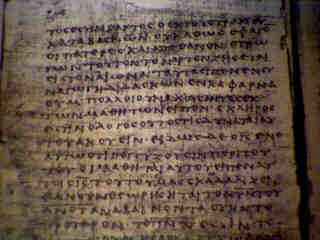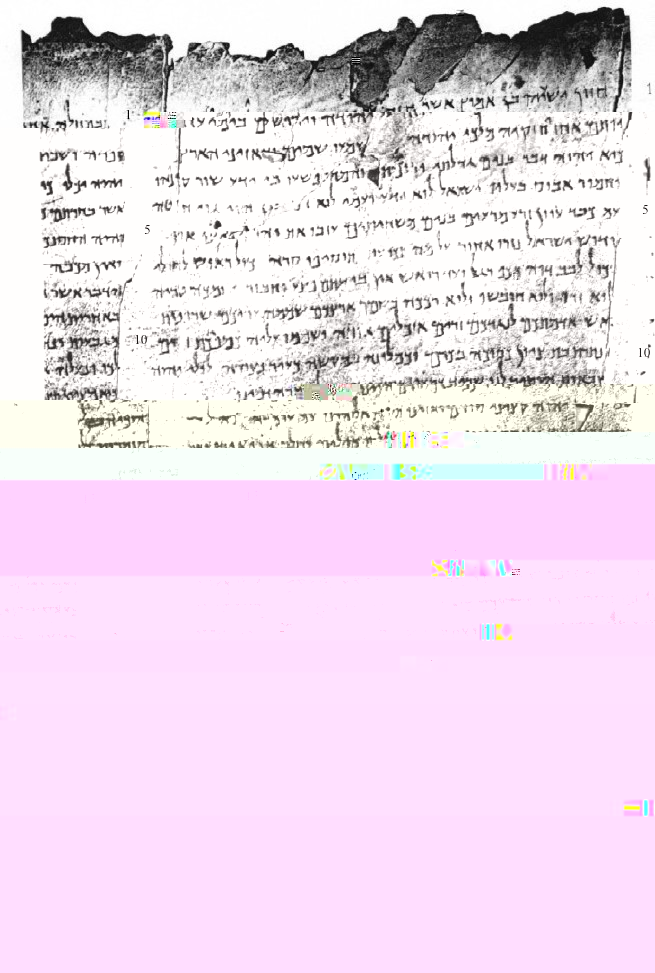- Bruce is a professor emeritus of New Testament at the Princeton Theological Seminary for 46 years
- He is also the chairman of the New Revised Standrad Version bible translation committee.
- Bruce is foremost expert on the origins of the New Testament
- Here is a page with Bruce's picture: click here
- The printing press was invented by Johannes Gutenberg in 1450: click here
- Before 1450, hand writing was the only way to preserve textual information.
- Very ancient times:
- Stone tablets (e.g., the famous Rosetta Stone):

- Clay tablets:

- Stone tablets (e.g., the famous Rosetta Stone):
- More recent times (around Jesus' life time)
- Copper Scroll: click here
- Papyrus Scroll: click here
Here is a page from Paul's letter to the Romans from the Chester Beatty museum:

- Animal skin (mostly sheep skin)
The New Testament were written on Papyrus scrolls.
- Copper Scroll: click here
- Through usage, papyrus scrolls wears out....
- From time to time, the documents of value must be reproduced by copying by hand !!!
- Errors can be introduced by the copying process:
- Omission Error:
Word(s) or an entire sentence can be omitted (deleted)
Matthew 5:22, NIV (using a corrupted version of ancient text) -
But I tell you that anyone who is angry with his brother
will be subject to judgement
Matthew 5:22, King James (using the "Received Text"):
-
But I say unto you, That whosoever is angry with his brother
without a cause shall be in danger of the judgement.
- Insertion Error:
Word(s) can be inserted
- Copy Error:
Word(s) can be changed
2 Chronicle 36:9 -
Jehoiachin was eight years old when he began to reign,
and he reigned three months and ten days in Jerusalem.
And he did the evil in the sight of Jehovah.
2 Kings 24:8
-
Jehoiachin was eighteen years old when he began to reign,
and he reigned in Jerusalem three months. And his mother's name
was Nehushta, the daughter of Elnathan of Jerusalem.
- Omission Error:
Word(s) or an entire sentence can be omitted (deleted)
- Clearly, the less time there is between a surviving copy
and writing of the original copy, the more accurate
the content will be - because the number of times that you need
to make copies is reduced.
- So how does the earliest surviving copies of
the New Testament texts
compares against other documents that were
written around the same time
that the New Testament was written (we use these
documents to give a fair comparison) ???
It is also be interesting to compare it with documents written outside the above period - also for comparison reasons.










